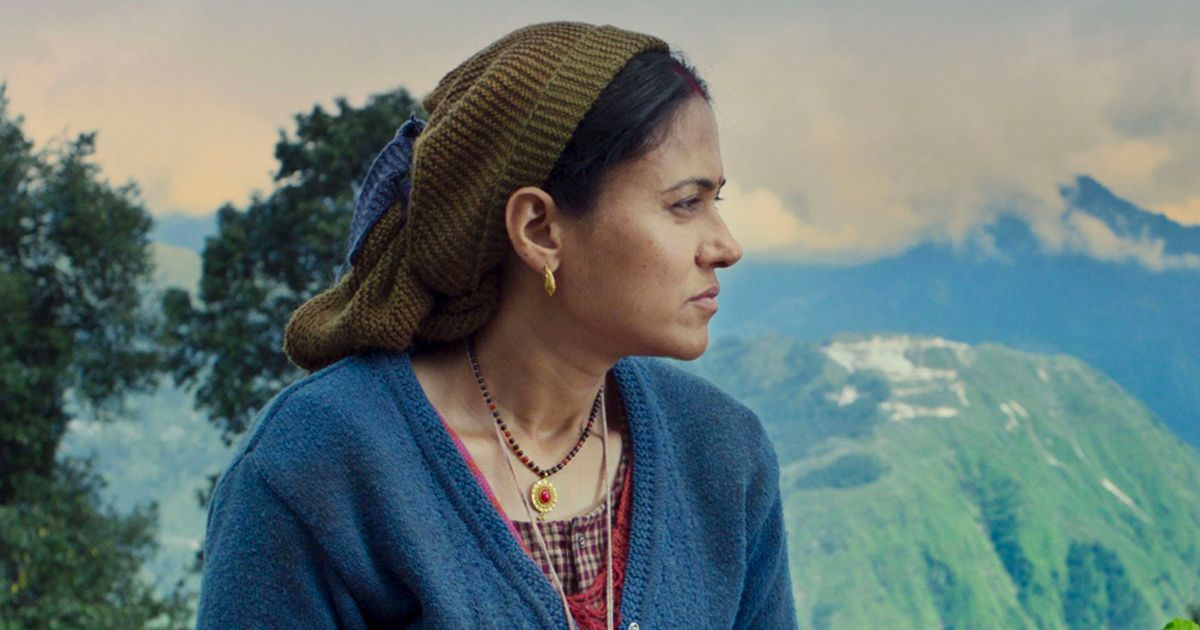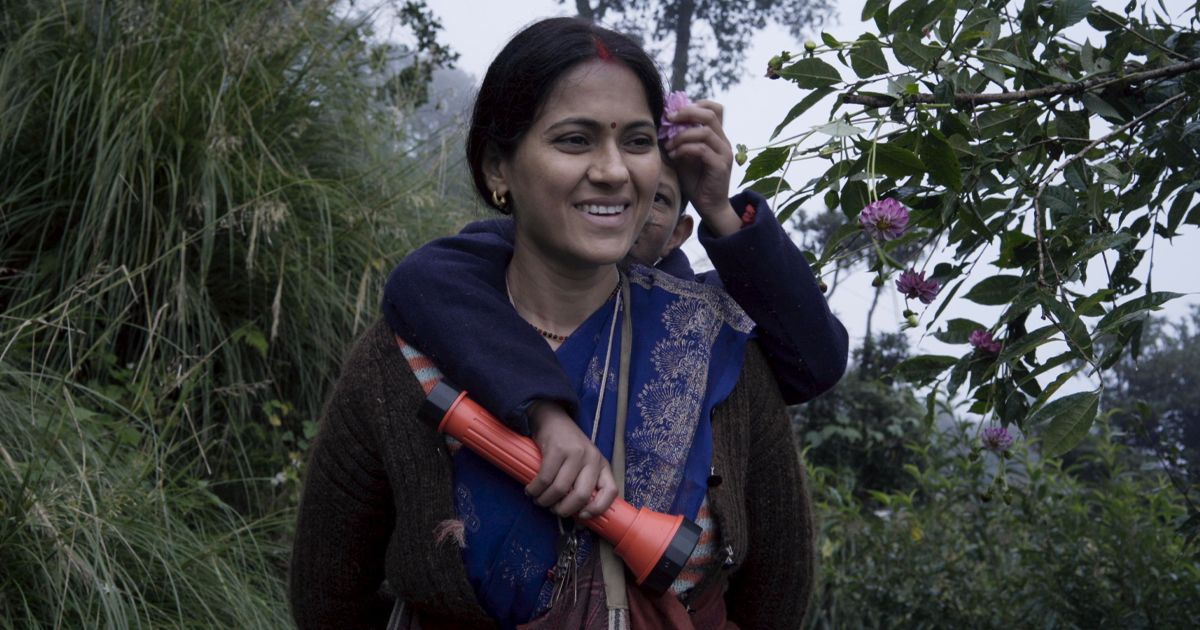A rural Indian woman toils for her family while facing a brutal patriarchy and religious oppression. Fire in the Mountains tells an unsparing story of struggle without recourse. The mountainous, awe-inspiring landscape of the Himalayan setting can't shroud the daily misery of a subjugated protagonist. She's trapped in a world that depends on her back-breaking labor. A slave to the grind that never sees the light of joy, her bottled feelings erupt in a startling and troubling climax. Fire in the Mountains paints a somber picture of servitude in a place of majestic beauty.
In Uttarakhand, India, Chandra (Vinamrata Rai) haggles with her neighbor for desperately needed tourist business. She carries their bags up a steep hill to her family's house. They rent rooms with a promise of scenic views and American-style toilets. Dharam (Chandan Bisht), her drunken husband, stumbles in looking for his dinner. Chandra begs him to sell their greenhouse land. They desperately need money.
Chandra carries her crippled son, Prakash (Mayank Singh Jaira), down the hillside to visit the doctor. The boy's problems require more therapy. Chandra asks the village chief for an update on the road's construction. He wants more than just talk. Chandra's daughter, Kanchan (Harshita Tiwari), shirks her chores for social media. Dharam's sister, Kamla (Sonal Jha), lives for free while offering little help. A depressed Dharam seeks counsel from the village "guru". Participation in a shamanic ritual will solve the family's problems. Chandra refuses to spend their savings on a fantasy. She learns the hard way where a woman belongs in her culture.
Characters With Significant Depth
Director/writer Ajitpal Singh delivers a richly dramatic feature debut. He gives every character significant depth in a layered narrative. Chandra is taken for granted by everyone around her. She's akin to a mule that's expected to carry the family's burdens. Her thoughts and feelings are trivial. Yet Chandra's husband and children chafe under the weight of her efforts.
Dharam's embarrassing failings always lead outwards. His search for answers is never introspective. The ceremony will solve everything by appeasing the gods. His drinking and abuse couldn't be the source of their problems. Dharam's consultations with the shaman reinforces his patriarchal authority. The man of the house should never take orders from a woman. A laughable concept when Chandra does all the work.
The subplots regarding Prakash and Kanchan are the most interesting. Prakash uses his mother as a crutch. Carrying him up and down is simply another expectation. He's bullied and mocked by the other village children; but isn't a sympathetic figure. Kanchan's exploits are more understandable. She's a bright student with a promising academic future, and like most teenagers, wants attention by being provocative on social media. Chandra sees no benefit to Kanchan's educational awards or frivolous gallivanting. The fields still need planting, animals fed, and water brought to the house. Idle play is not a luxury Chandra can afford.
Commentary With Precision
Singh hits a bullseye with subtle criticism of the Indian government. Radio news plays in the background throughout the film. Reporters laud India's burgeoning space industry and rapid development. These notes of progress ring hollow when Chandra's village doesn't have a paved road. Her hopes for easier medical access is preyed upon by lecherous men. These scenes are infuriating.
Fire in the Mountains packs a wallop in its relatively short runtime. Singh's straightforward approach makes every minute meaningful. Chandra gives every ounce of herself. The film's conclusion leaves an impact. A rope breaks when the load becomes too heavy.
Fire in the Mountains has Hindi dialogue with English subtitles. It is a production of Jar Pictures. Fire in the Mountains will have a national release in select theaters on May 27th from Kino Lorber.


